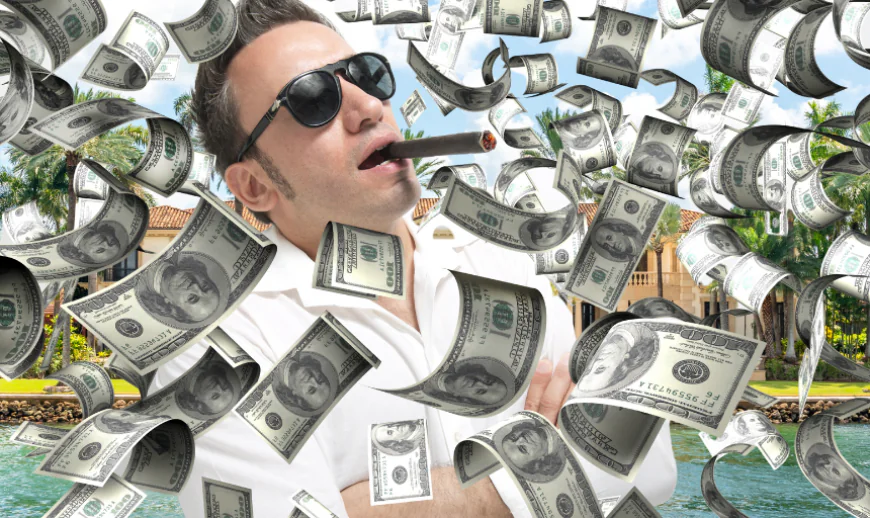How Billionaires Play the Tax Game—And What It Means for the Rest of Us
Billionaires have mastered the art of tax avoidance, using loopholes and financial wizardry unavailable to ordinary taxpayers. From borrowing against stock to exploiting tax shelters, these strategies shape the economy—and leave regular folks picking up the tab.

Tax Avoidance 101: Billionaire Edition
While the average person frets over W-2s and deductions for charitable donations, billionaires are playing a completely different game. Here's how they do it:
-
The "Never Sell" Strategy – In the mortal world, you work hard, earn money, pay taxes, and repeat. In billionaire land, you simply never sell your assets—because selling means taxable income. Instead, they borrow against their stock, enjoy life, and repay the loan later (often with more borrowed money). And since borrowed money isn’t taxed, well, that's one way to dodge the system.
-
The Magical Roth IRA – Roth IRAs were designed to help regular folks save for retirement, but some billionaires have turned them into personal tax-free kingdoms. One famous case? A tech mogul transformed a humble retirement account into a $5 billion fortress, shielded from taxes. How? By stuffing it with undervalued shares of his startup, which later skyrocketed in value. Lucky him!
-
Real Estate and Oil: The Loophole Wonderland – Certain industries come with tax perks galore. Billionaires in real estate and oil write off depreciation, drilling costs, and various deductions, often wiping away their taxable income entirely. Because clearly, owning a fleet of luxury properties is an economic hardship.
-
Hobby or Business? Depends on the Deduction! – While you might enjoy knitting or collecting vintage comic books, billionaires ensure their hobbies are technically businesses. From thoroughbred horse racing to luxury hotels, their side gigs become perfect little deduction machines, allowing them to claim losses (even when they're raking in profits).
-
The Passthrough Jackpot – The Trump-era tax cut for passthrough businesses was marketed as helping small business owners. But surprise! It disproportionately benefited billionaires, slashing their tax rates. Some even reclassified their salaries as passthrough income to maximize savings. Because when you're that wealthy, why not change the rules in your favor?
-
The Trusty Trusts – The estate tax is supposed to prevent dynasties from endlessly accumulating wealth. But wealthy families sidestep it effortlessly using trusts, ensuring fortunes remain untouched by Uncle Sam while seamlessly passing through generations.
The Economic Side Effects of Billionaire Tax Avoidance
Now that we’ve uncovered their secret playbook, let’s talk about how this affects the rest of us. Spoiler alert: it's not great.
-
Government Revenue Shrinks – When billionaires sidestep taxes, governments collect less money, meaning funding for schools, roads, and healthcare takes a hit. And guess who makes up the difference? That’s right—regular taxpayers.
-
Wealth Inequality Skyrockets – These tax avoidance strategies help billionaires hoard wealth, widening the gap between the ultra-rich and the rest of society. If you’ve ever felt like economic mobility is just a myth, well, now you know why.
-
Investment Distortions – Some of these tax loopholes influence how billionaires structure their investments. For example, real estate moguls hold onto properties longer for tax benefits, slowing market efficiency and driving up prices for everyone else.
-
Small Businesses Struggle – While billionaires exploit tax tricks, small businesses don’t get the same advantages, making it harder for them to compete, grow, and innovate.
-
Economic Instability Looms – When billionaires borrow endlessly against assets instead of selling them, financial bubbles can emerge, creating instability that eventually impacts the broader economy.
-
Policy Battles Intensify – As the public becomes aware of these tactics, lawmakers are increasingly proposing wealth taxes and reforms. The debate over taxation is heating up, with calls to close loopholes and ensure billionaires actually contribute. Whether or not that happens—well, that’s a different story.
Final Takeaway
What's Your Reaction?
 Like
0
Like
0
 Dislike
0
Dislike
0
 Love
0
Love
0
 Funny
0
Funny
0
 Angry
0
Angry
0
 Sad
0
Sad
0
 Wow
0
Wow
0





























